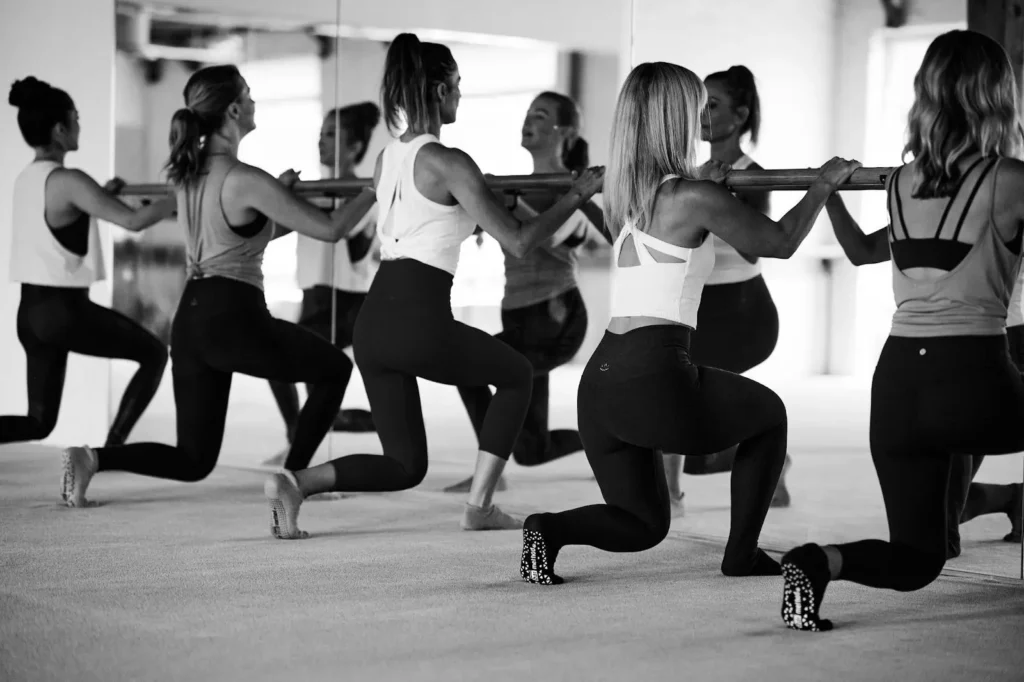
The fitness industry is changing all the time, and Self Esteem Brands knows the importance of evolving to meet the market
In the fitness space, there’s always a new trend. Whether it’s novel workouts, new medications or updated technology, each threatens to make existing brands stale, or worse, obsolete.
This is not news to Self Esteem Brands. As its studio and gym franchises continue to grow, the leadership team remains focused on evolving the brands to meet the ever-changing needs of its fitness-conscious consumers. And that’s good news for the many franchisees with Anytime Fitness, Basecamp Fitness, The Bar Method and Waxing the City locations—as well as other entrepreneurs who may have designs on joining the fold.
With more than 5,000 Anytime Fitness locations alone, the company is unique in the fitness franchise space. The sheer number of users across brands translates into a constant flow of customer feedback and insights, which the team uses to evolve their concepts and bring new ideas online.
Here, Stacy Anderson, global brand president, Anytime Fitness, and Nick Herrild, president – studio division/Waxing the City, share how Self Esteem Brands leverages its size and scale to keep its franchise brands relevant and its franchisees profitable.
Athletech News: The conversation around fitness changes a lot. How does Self Esteem Brands evolve its studio concepts to keep them relevant for your franchisees?
Nick Herrild: It’s absolutely something that we try to keep track of. And we do look at trends in the fitness industry and beyond to understand what’s happening and how can we stay ahead of it, but we adapt along the way. We often talk about how a concept will have a core essence that will be true for a long time, but the brand will evolve over the next three to five years so the brands will look different.

I’ll use The Bar Method as an example. There’s a lot of focus on strength right now. And I think that at the baseline, The Bar Method does have a strength focus, but we’ve been able to make fitness modalities that really focus on the strength essence of getting into the trends that consumers are looking for. We try to evolve over time to match up with what consumers need without losing the essence of the brand.
ATN: How do you determine what consumers at each of your concepts will want next?
NH: The fact that Anytime Fitness is so big and has been able to guide us in building capabilities has given us more access to resources we wouldn’t have in our small brands. It gives us really two things: not only resourcing but also data and thought around the consumer in order to match up the right concept with what we’re trying to do in the marketplace.
When we think about SEB as a shared service matrix, that means that if you’re working in marketing for any one of our brands, you’re still laddering up to the capability that we’re building at the SEB level of stronger marketing function. That helps us evolve. So, we know what they’re looking for. We understand what the trends are in the marketplace. We think of ways to apply those trends to the work that we’re doing within the brand as well as what we believe is core to each brand.

ATN: For a concept like Basecamp Fitness, which is in growth mode, what’s the difference between a concept that has 10 locations versus one with 100 locations from the franchisees’ perspective?
NH: We’ve got 10-20 locations, when you think about the idea of the work that you need to go into the brand at this point at 22 locations for Basecamp, you’re very involved. You’re in the studio. We’re working through details with the franchisees that are out there. They understand that when a brand is young like that, we’re going to be really good at some things, and we have to figure out some other things.
When you get out to 40 to 60 locations, you’re getting to a place where you’re really thinking ‘Okay, we need to make decisions that help us scale.’ So, we can’t do any one-off things. And then as you move towards 100 locations, everything needs to scale, and you’ve got a lot more of the system and process put into place in a way that’s replicable and then that gives you the chance to unlock. It is very hard in those early stages. But you gradually get to a place where you’re thinking more and more about scale and success metrics.
ATN: Consumers now have a lot of fitness options, including working out at home. How does Self Esteem differentiate its brands from competitors?
Stacy Anderson: The reality is, the community you create in your club environment is probably the stickiest thing you can do in terms of customer loyalty. And the good news is probably your most important piece of workout equipment. It’s also the hub of your connection to your clubs, and your connection to your members.
We talk about care coaching and connecting at this company quite a bit, and that is really the secret sauce for creating community that drives business results and loyalty or I always say irrational loyalty. You might always have a cheaper concept come into the market, but the relationships you have are that thing that really binds both your staff and your membership together in a way that creates insulation around your business.

ATN: Where do you see the fitness industry heading over the next five years?
NH: It’s only going to become more important to people to have a full, holistic outlook on their health and wellbeing. That’s probably an advantage or tailwind for us. We’re thinking about different ways to give them more out of their memberships or their experiences in the studio or the club to be able, to find coaching if they need that, to be able to have in Waxing the City more holistic beauty services to think about their healthy skin versus just hair removal.
We’re using technology a lot because regardless of what product we’re offering and how we think about how our brands or our workouts or our services come be life, the technology piece of it is going to become more and more important to our consumers. And so, we’re using technology to reduce friction points for them. Your phone is a great avenue to get people to connect with brands in an efficient way.
ATN: How do fitness and wellness fit together, and how is Self Esteem pursuing opportunities at this convergence?
SA: Everybody’s talking about Wegovy and Ozempic, and clearly all those medications have an impact on people’s jumpstart to their wellness journey. I think personally that that’s a great thing. Whatever you need to get started to be able to move yourself forward is really incredible. The reality is the side effect of some of those drugs is that you’re losing some of your strength and you’re losing some of your muscle, and I think gyms and wellness services are going to play a really big part. That’s just another tailwind that’s going to be behind us as a larger population is going to feel like, “Oh gosh I can do this.”
Beyond just different modalities of inside and outside the club, digital versus physical, we’re thinking about nutrition. We have Stronger U, a nutrition service that is a direct-to-consumer business of ours. We’re working on training programming that’s expanded to different populations. We’re working on recovery programming. We’re even getting into the mental health side of things, knowing that so much of your health has to do with your headspace and where you’re at there. I think as we go forward, you’re going to see a lot more partnerships. We just started one with Apple Fitness+ that allows all of our members to have access to Apple Fitness+ as part of their membership.
